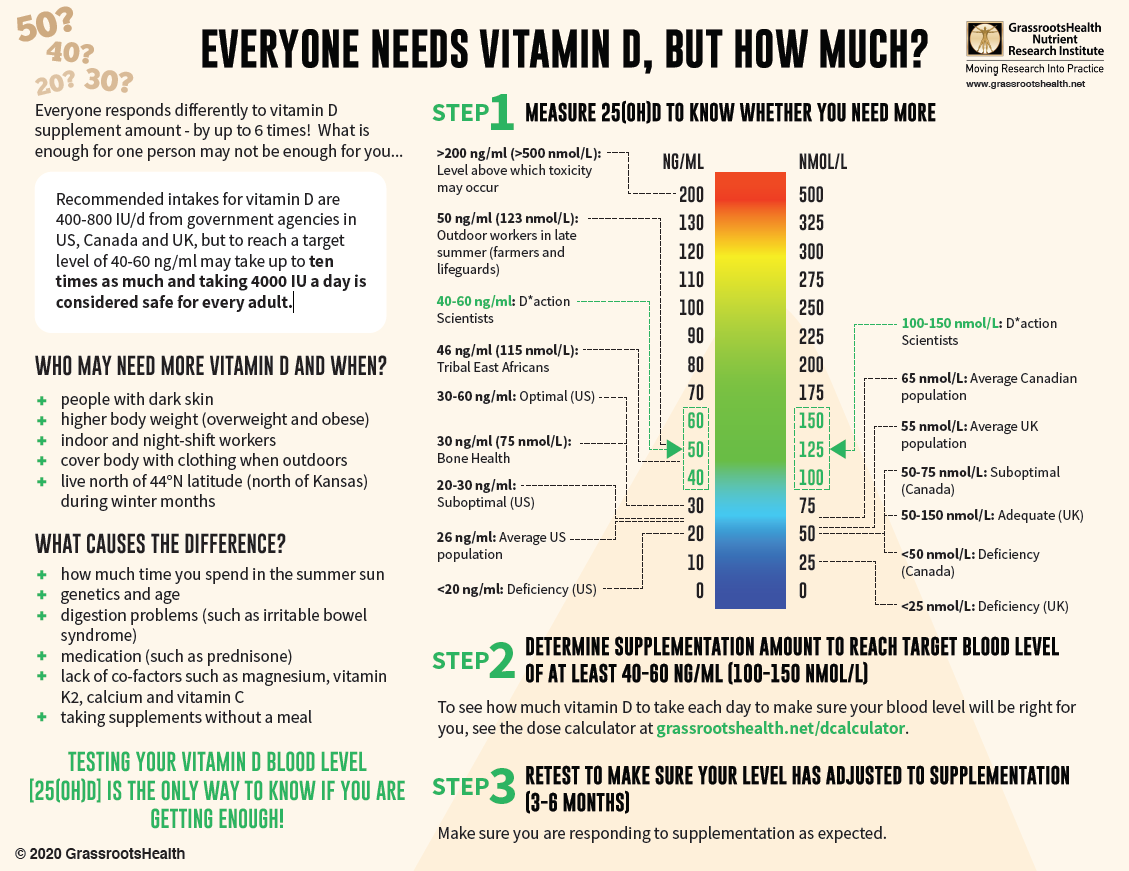Published on February 5, 2021
Video Friday: How your body might be telling you it needs more vitamin D
It’s Video Friday! Today’s video discusses several signs that someone may be experiencing if they have a vitamin D deficiency. Vitamin D deficiency is a major health issue, with almost 90% of the population having levels below the scientists’ recommended 40-60 ng/ml (100-150 nmol/L) blood level.
Please take a moment to watch and share the video along with our detailed information below.
Watch the Video
After watching the video, be sure to make note of our added details below!
How the Body Might be Saying it Needs More Vitamin D
Here is a quick summary of what this video discusses, along with additional information and details about vitamin D:
- Vitamin D deficiency is a major public health concern. Each individual can only produce enough vitamin D if getting enough sunlight or getting enough vitamin D from a dietary/supplement form.
- It is difficult to get the vitamin D you need from diet alone, and the current recommendations for vitamin D supplementation are too low for the majority of the population.
The 14 signs of vitamin D deficiency discussed in the video are:
- Aching muscles (as vitamin D is necessary for muscle function and strength)
- Painful bones (vitamin D is essential to proper bone health and bone tissue replacement; deficiency can result in rickets, osteomalacia, and osteoporosis)
- Fatigue (such as feeling tired and sluggish)
- Reduced Endurance (vitamin D is essential for optimal athletic performance)
- Low Moods (vitamin D plays important roles in brain health, generation of neurotransmitters, and deficiency has been linked to depression, anxiety, dementia and other cognitive disorders)
- Problems sleeping well
- Sweaty head (with an absence of sweat elsewhere)
- Losing hair (vitamin D has been shown to stimulate hair growth)
- Wounds heal slowly (vitamin D is important for rebuilding skin)
- Dizziness (vitamin D is thought to play a role in maintaining calcium balance in the ears)
- Heart problems (vitamin D deficiency is linked to increased risk of heart and cardiovascular diseases, such as high blood pressure and stroke)
- Excessive body weight (people with a higher BMI require more vitamin D)
- Recurring infections (vitamin D plays many key roles in immune system function)
- Reduced cognitive function (vitamin D has neuroprotective effects, is involved in the preservation of nerve function, and deficiency has been linked to cognitive diseases such as dementia)
Are You Getting Enough Vitamin D & Other Immune Boosting Nutrients?
Everyone needs vitamin D! Below is a guide for how much you might need, and who may need more. Your levels can be tested safely at home – order your home test kit today.
By joining the GrassrootsHealth projects, you are not only contributing valuable information to our study, but you are also gaining knowledge about how you could improve your own health through measuring and tracking your nutrient status, and educating yourself on how to improve it. Do you know what your status of vitamin D, omega-3s, and other essential nutrients is? Could your levels be improved? Test now to find out!








